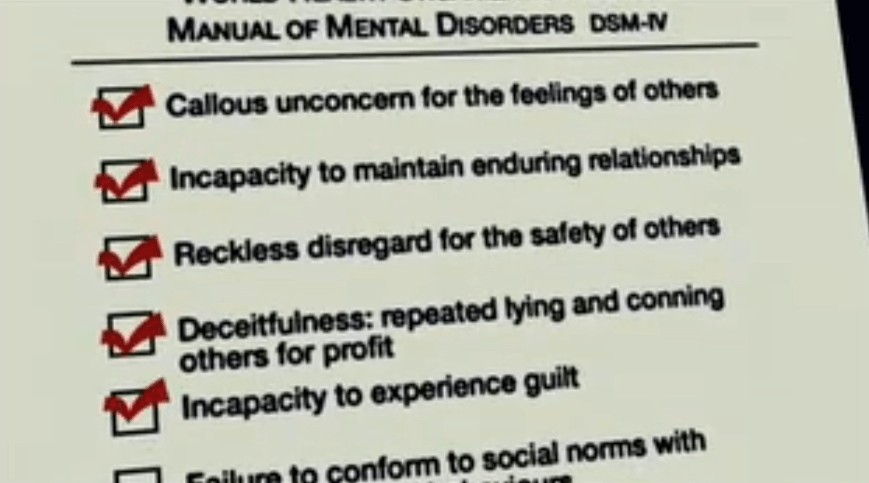 Marshall McLuhan from La Ventana Ciudadana, CC BY-SA 2.0 https://creativecommons.org/licenses/by-sa/2.0, via Wikimedia Commons
Marshall McLuhan from La Ventana Ciudadana, CC BY-SA 2.0 https://creativecommons.org/licenses/by-sa/2.0, via Wikimedia Commons
In 1964, Marshall McLuhan coined the phrase 'the medium is the message'1. The phrase asks us to look at the medium, not just at content (the message). In other words, what is used to convey a message can be more interesting and relevant than the message itself, not least because it says a lot about the motivation behind the message.
In 1967, McLuhan wrote the book The Medium is the Massage2. The book shows how mediums not only convey messages but shape the consumer.
Both concepts are alive and kicking. People who post stuff on Tiktok are called tiktokers; in the same vein, we now have MAGA people, youtubers, and so on. A medium is loaded with adjectives rather than say hey, the medium is actually made out of loads of different individuals with unique ideas and needs.
In February of the year 2025, a person entered a school in Örebro in Sweden and shot eleven people to death3. Moments after the massacre started, a reporter from the Swedish tabloid medium Aftonbladet called the father of the suspected mass murderer. The reporter asked the father if his son was the murderer.
'I know nothing about this', the father replied.
The reporter then asked the father if he was aware of the massive police effort outside of the son's apartment.
'This is insane. What's happened?', the father said, and later added 'This is impossible', before hanging up the phone.
Aftonbladet later apologised through their responsible publisher4. I doubt that the persons responsible directly contacted and apologised to the murderer's father. Aftonbladet were fairly vague in their written apology; they didn't say why they apologised, which says much about their supposed admittance of guilt and wrongdoing. It's easy to ask questions from behind a phone. What would take real guts would be for Aftonbladet to truly apologise to the father, to publish an apology on their front page, but they're just cowards who pander to advertisers, so no real apology, not even to someone whose son's blood was used by Aftonbladet for monetary profit.
Many years ago, my father worked as the Swedish press attaché for the Yugoslav national soccer association. In less fancy words, dad liaised between the the soccer team and Swedish media. In 1992, the soccer team travelled to a training camp in Sweden, shacked up in a little village hotel just outside of Leksand, a small town. One day, while walking through the hotel grounds, my dad saw an Aftonbladet reporter who was trying to pry open the door of a hotel room where a soccer players was staying. My dad asked the reporter what he was doing. The guy lied and scurried away.
The medium is the message; my dad didn't accept the medium's attempt at massage.
A few years later I worked as a support tech for the Swedish government. I spoke with a person who carried a very distinct surname that I've only heard once before in my life: it also belonged to the Aftonbladet reporter. While fixing a support problem, the person on the other end of the line asked me about the origin of my surname. I answered and then asked them the same thing, and they said they'd married into it, adding their person worked as a sports journalist. I asked where they worked, and they workedfor Aftonbladet. From nowhere, the person said they were so proud of their significant other who 'was a moral person'. A moral. A-moral. Amoral. Sorry.
I won't go far enough into thinking aloud about what's moral or not, but I will say this: as with sexuality, I believe morality is rarely black or white; even mathematics get messy when one introduces philosophical and odd concepts, which I think is something that must happen when one thinks about morality long enough. Morality has to do with conformity according to at least one set of rules of what's right or wrong. To say someone is wrong, morally speaking, means a line of conformity has been passed. Ethics is a bunch of moral principles.
Aftonbladet is a tabloid magazine; they have in the past actively supported the Hitler regime5, among other anti-humanistic acts. Do they consider morality? Do they conform to ethics? Have they made amends beyond those enforced by legal courts?
I've known people who worked at Aftonbladet and similar tabloids. All of those persons did it for the money, the camaraderie, and concluded that it nearly made them lose their soul. Simply because they lost all sense of direction; at the end of the day, a lot of companies that work this way are not immoral, it's just that they work according to a fascist principle: serve the people who are hierarchically higher up than yourself and kick downwards. This is how most capitalist companies work, because they're owned by shareholders; all capitalist companies are fascist in structure.
Aftonbladet and other tabloid magazines are not unique in this sense.
Most of us have worked or work for a company or an organisation that have done and do bad stuff. Hell. everyone does bad stuff. To me, the more interesting part about morality is what we do after we've committed bad stuff, and hopefully realised some breadth of actions.
For example, take Massachusetts Institute of Technology, known as MIT. They roughly admit one applicant from every 28 that apply and have generated oodles of prize winners in many different scientific fields. MIT are funded by the Pentagon, which is the headquarters for the North American war department. Does this mean MIT are evil? What we can certainly say is they take money from the Pentagon, which might be very bad; part of the money is undoubtedly pilfered from the coffers of other countries, as when the USA illegally invaded Iraq in the 1990s, all to siphon oil and oil profits.
MIT have allowed groundbreaking work in different scientific areas, all of which have contributed to the betterment of the world. Does this mean they're great? Well, they've still accepted blood money, which is not great.
Personally speaking, I think the important thing is how we learn, what we do, how we get on with our lives after having done something bad, no matter what we've messed up.
Also, I keep thinking of what one messes up. Let's say you're a kleptomaniac. You steal stuff and the behaviour might be something you can't control. It's one thing if you steal shit from a corporation-owned supermarket. You lift some cans of tomato soup, nobody gives a toss. On the other hand, let's say you steal insulin off a diabetic who dies. You've caused the death of a person. That's about as messed up as it gets.
Or is it?
What about Martin Shkreli10, the capitalist who 'obtained the manufacturing license for [a] drug [...] and raised its price to insurance companies from $13.50 to $750.00 (USD) per pill'? What about the people who couldn't afford to pay more than 55 times the fee for that pill?
I think of the film Léon11 where an assassin trains a child to be an assassin. To begin with, the child had to use a sniper rifle, simply because causing someone's death becomes harder the closer you are to the victim-to-be.
The same applies with capitalism, I think: the farther from the victim-to-be, the easier it is to be a capitalist.
Am I trying to say your life is over in case you've caused the death of someone? No, I don't think that would be fair; first, I'm not the judge over others in that sense; second, I don't think a life is 'over' unless one is dead. You can always bounce back from whatever.
What I do mind is stupidity. For me, stupidity is doing something you know will result in something bad but you still do it. I don't mind stupidity like Jackass6. I mind stupidity as in 'I care about what's mine and not about other people', like how tabloid mags like Aftonbladet shred human lives like they're candy paper ditched on a tarmac, rarely looking back.
Hannah Arendt coined the phrase 'banality of evil'7. One of the first definitions of 'evil' in Merriam-Webster is 'morally reprehensible'. In other words, evil is something you do, not something you are, to paraphrase Morrissey8.
So, what can we learn from someone who constantly does bad things and does not change their ways?
 A screenshot from 'The Corporation'.
A screenshot from 'The Corporation'.
The documentary film The Corporation is wonderful in its straightforward way of defining corporations. Part of the documentary lets Robert Hare—the famous Canadian psychologist who defined 'psychopathy' for the Diagnostic and Statistical Manual of Mental Disorders—try and nail down how well a corporation fits Hare's own psychopathy checklist9; a corporation checks all boxes: a corporation is a complete psychopath, callous in the extreme, only doing things for its own good.
As long as companies like Aftonbladet are controlled in the way they are, where power is held by a few persons who own most of the company and often know the least about the workers at the company, they are unable to stop creating turmoil and pain. They'll twist the knife if it adds a cent of profit.
The capitalist-run tabloid can only survive if it creates enough or more-than-expected shareholder value, a number that shareholders usually want to continously grow. Sure, some writers at Aftonbladet are brilliant, but as a whole, if they don't generate profit, they'll be fired or the tabloid will cease to exist. Their board of directors and biggest shareholders dictate work; in other words, people who best know how to run the show don't run the show.
The people who make the biggest decisions are farthest away from the people who use the product, to sound like a daft manager. The people who least want to feel the weight of their actions are farthest away. They can't and don't want to hear the sounds of their victims. If that's the message from the medium, should we listen to their message?
-
“The Medium Is the Message,” Wikipedia, March 4, 2025, accessed April 25, 2025, https://en.wikipedia.org/w/index.php?title=The_medium_is_the_message&oldid=1278790170. ↩
-
Marshall McLuhan, The Medium Is the Massage (London: Penguin, 1967). ↩
-
“Örebro School Shooting.” Wikipedia, April 8, 2025. Accessed April 25, 2025. https://en.wikipedia.org/w/index.php?title=%C3%96rebro_school_shooting&oldid=1284555796. ↩
-
Hanna Lundquist, “Aftonbladet avpublicerade intervju med anhörig – ber om ursäkt,” Journalisten, last modified February 5, 2025, accessed April 25, 2025, https://www.journalisten.se/nyheter/aftonbladet-avpublicerade-intervju-med-anhorig-ber-om-ursakt/. ↩
-
Alsing, Rolf. “Krigsåren Och Folkhemmens Födelse.” Vita Bussar. Last modified March 5, 2005. Accessed April 25, 2025. https://web.archive.org/web/20050305162517/http://www.vitabussar.se/sverige.htm. ↩
-
“Jackass (Franchise),” Wikipedia, June 4, 2025, accessed June 9, 2025, https://en.wikipedia.org/w/index.php?title=Jackass_(franchise). ↩
-
“Eichmann in Jerusalem.” Wikipedia, May 24, 2025. Accessed June 9, 2025. https://en.wikipedia.org/wiki/Eichmann_in_Jerusalem#Banality_of_evil. ↩
-
“Sister I’m a Poet.” Last modified June 9, 2025. https://genius.com/Morrissey-sister-im-a-poet-lyrics. ↩
-
“THE CORPORATION [6/23] The Pathology of Commerce.” Accessed June 9, 2025. https://www.youtube.com/watch?v=s5hEiANG4Uk. ↩
-
“Martin Shkreli.” Wikipedia, June 9, 2025. Accessed June 10, 2025. https://en.wikipedia.org/w/index.php?title=Martin_Shkreli. ↩
-
Besson, Luc. Léon. Action, Crime, Drama. Columbia Pictures, Gaumont, Les Films du Dauphin, 1994. ↩